
-
From Fact to Fiction ?
‘I read for pleasure and that is the moment I learn the most‘
– Margaret Attwood (Nobel Prize of Literature, 2019)Hi, my name is Georgia and I am a Student Advisor for Library & Learning Services in Catalyst. A great Study Happy tip is taking regular breaks and doing something enjoyable!
As a primary teacher in training, we are always encouraged to promote reading for pleasure in schools, but what about when you get past primary school? I loved to read throughout school, but now that I am in university, I find it hard to even think of reading something other than academic literature.
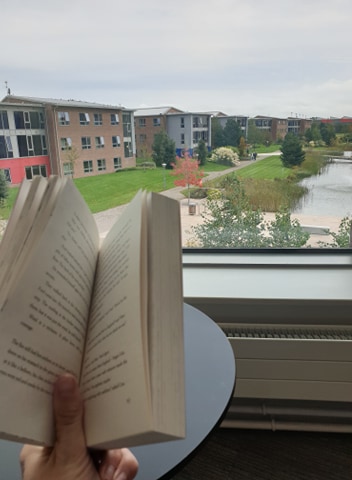

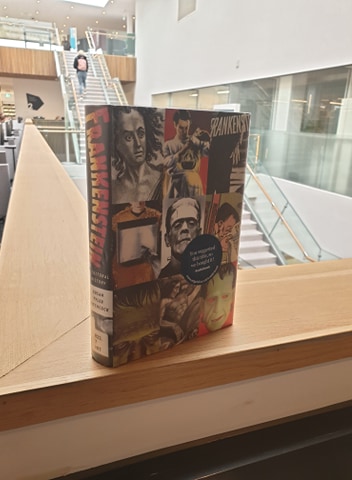
Firstly, the important question! What is reading for pleasure? Well, this is the idea that anyone should be able to pick up a book, and not only read it but enjoy it! You don’t have to be an avid reader, just somebody who enjoys letting your mind ease into a world made of words, wit and wonders.
Our assignments require us to read journals, books, eBooks and ensure that we complete referencing correctly, but sometimes you need a brain break from studying and what better way to lose the stress of reality by getting lost in an atmosphere of imagination. In fact, reading not only relaxes your mind but also develops vocabulary and writing skills, supporting your academic assignments more than you’d think.
Did you know that there is an amazing range of fictional literature available in Catalyst? A whole section, from the first floor of the library to the second, filled to the brim with stories to expand your reading from ‘The Tiger Who Came to Tea’ to ‘Macbeth’. These resources are accessible to all students to loan and I would recommend having a look around and discovering a book for you. You may be searching for a book for your children, your class or yourself, and you don’t have to be a teaching student to appreciate a good book!
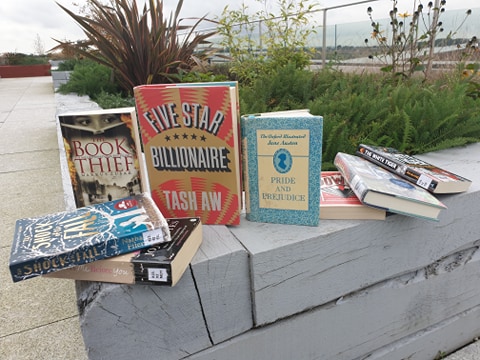
If you’re interested in sharing your favourite books with others and being introduced to new stories, then make sure you get involved in the Edge Hill Book Hunt. This scheme allows students and staff to leave books around campus for others to find, read and love. All you have to do is hide a book and then find a book! Make sure you post your found book on twitter with #EHUBookHunt.
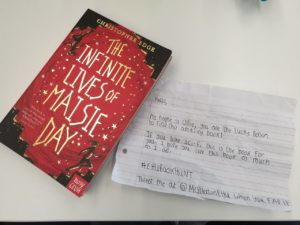
Thank you for reading my blog – Student Advisor Georgia ?
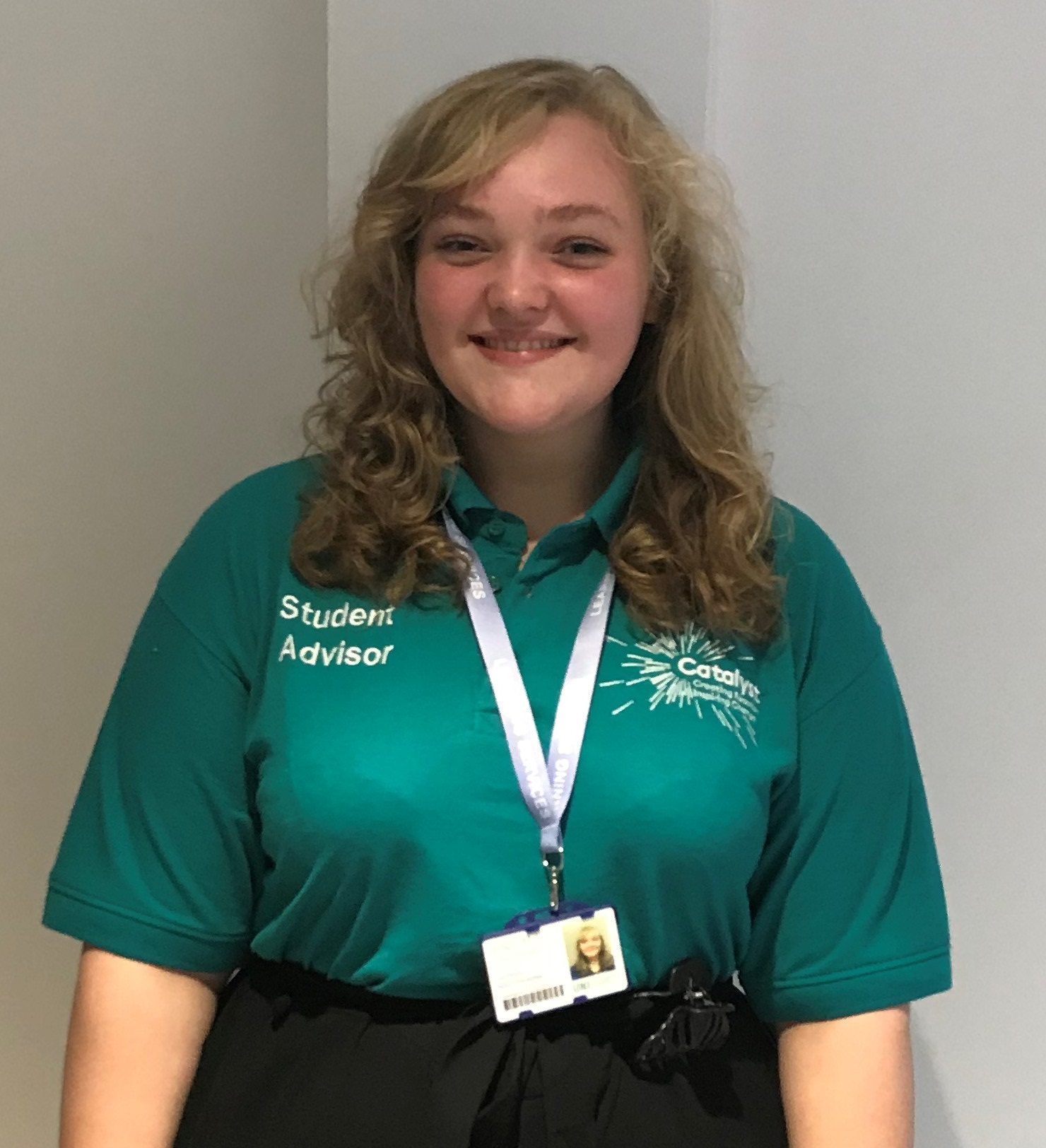
Georgia Maestri-Banks
BA Primary English Education with QTS – 3rd Year
-
Study Happy Student Tips
The cold, dark nights of winter are finally upon us and despite Halloween being over I, like many students, am still feeling a little on edge… Not because of ghosts or ghouls but something more terrifying…assignment season is well and truly upon us.
Even as a third year the dreaded assignment deadlines looming ever closer tend to fill me with dread and panic. Despite having the best intentions, by starting early and doing plenty of reading, I somehow have days until my deadline and I am yet to start writing.
If you’re like me and seem to get yourself into a bit of a tizz, worry not, as there are a multitude of ways to chase the assignment worries away…

1. GET YOURSELF A HARVARD REFERENCE GUIDE (shouty caps because it’s important!)
This is arguably one of the easiest ways to improve your academic skills and a great one to have under your belt! It massively helps the flow of your assignment to have supporting evidence and references fitting in seamlessly with your own writing, rather than inserted randomly at the end. I’d recommend printing off a reference guide…mine never leaves my bag! Grab your Harvard Reference Guide here!
2. Proofread
I know it’s boring and can be long winded, especially after you’ve spent weeks reading and writing on the same subject, all you want to do is submit that assignment and have a well-deserved rest. BUT. Proofreading is a sure way to spot any little mistakes within your writing. I love using a text to voice converter or the read aloud feature in Word. You can also get a friend or family member to read over as a second (fresh!) pair of eyes, this is a good way to help spot those small annoying grammatical errors.
3. Use Google Docs, or a memory stick, not just Word
I discovered this the hard way after a 3500 word assignment deleted itself ☹ BACK UP YOUR WORK! I now use Google Docs to write my assignments as it’s free, can be used anywhere and all changes are automatically saved onto the cloud, meaning I don’t have to worry about deleting Word or losing my pen stick …and I’m not having to hawk my laptop around with me. Google Docs is also super helpful for group projects as it allows everyone in your group to see and edit the work wherever you are making collaborations – 1000x less stressful!
4. Explore your references, references (aka wider reading!)
I find looking at the reference list of the articles and books I am reading, especially of my core texts, a great starting to point to help me delve deeper into the subject area. Not only does this enhance your knowledge with wider reading but it also allows you to boost your references and showing depth of reading allowing you to access those higher grades! Also, when reading a source write your reference in your reference style (e.g. Edge Hill Harvard) right away, so when it comes to creating your reference list it’s a simple copy, paste and quick check over!
5. Ask for help when you need it
Although we’re at university to learn, and tutors can’t write your assignments for you, they are there to help us. If you’re unsure I find emailing the module lead or my personal tutor a great place to start. If you have non-subject specific query, such as how to find the right information, or how to be critical, Catalyst is where you need to be. UniSkills offer a range of workshops and 1-2-1 appointments. Check out our upcoming events and workshops at ehu.ac.uk/workshops. We also offer more casual drop in support sessions every weekday, 11am-2pm, for any quick queries you have – visit the Catalyst Helpdesk for more information.
I hope these tips have helped you feel a bit less spooked about your upcoming assignments…if you want any more help and support please get in touch via Ask Us, visit the Catalyst Helpdesk or you can find us (Student Advisors) all this week on the ground floor of Catalyst for Study Happy week!
Thank you for reading my blog – Student Advisor Maisie ?
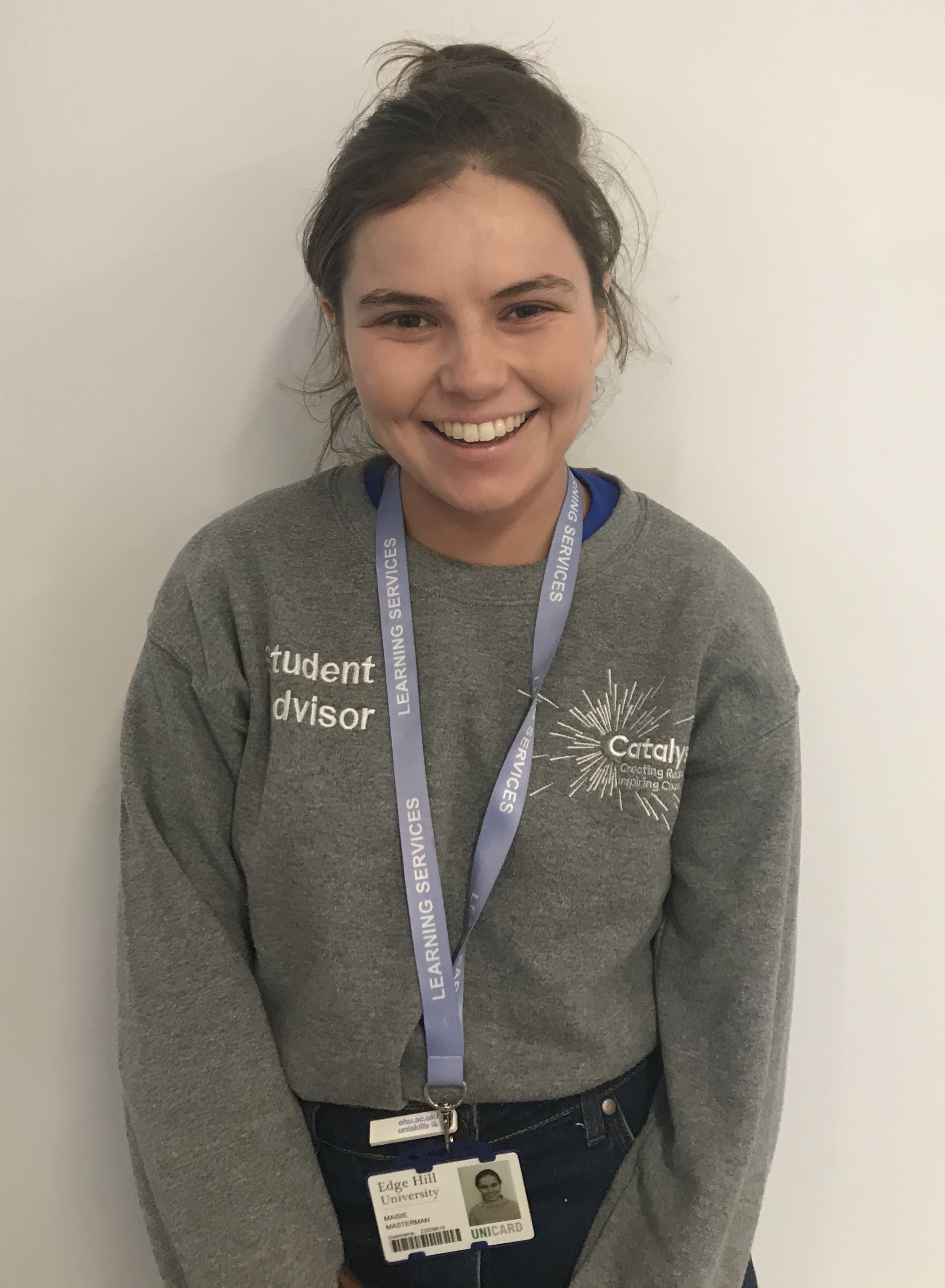
Maisie Masterman
BSc Primary Education with QTS – 3rd Year
-
About to publish your work with Sage?

Normally, to publish an article with a major publisher like Sage, researchers can only make their work open access by depositing it in Pure (‘green open access’). This is because making the work free to read on the journal’s webpages (‘gold open access’) carries a fee called an ‘article processing charge’ (APC) and can cost up to £3000.
For the remainder of 2019 though, Sage Publishing is offering Edge Hill authors a ‘zero rate APC’ deal – facilitating free gold open access.
There are a few conditions such as already-published or in-production articles being excempt. If you’re interested in benefitting from the deal, please contact Liam Bullingham, our Research Support Librarian to learn more: [email protected]
